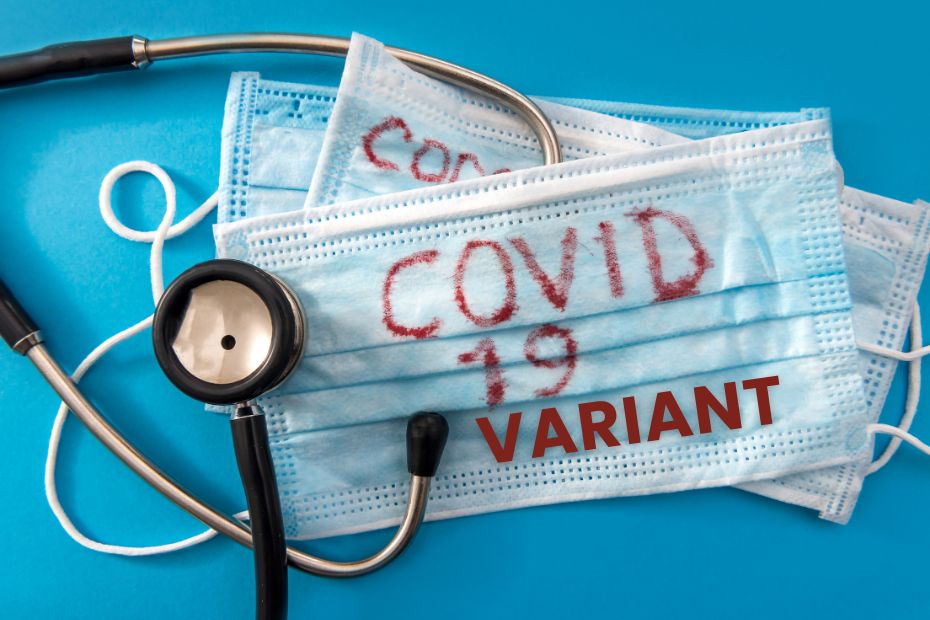The COVID-19 cases are on the rise again, with Kerela giving the maximum positives of 312 cases in a single day. The number of COVID-19 cases is also on the rise. The explosive rise of COVID-19 cases is an alarming situation for surrounding states such as Karnataka and Tamil Nadu, which has prompted them to take strict health measures such as increasing testing and making masks mandatory for those aged over 60 as well as people living with comorbidities like diabetes. So the immediate question that comes to our mind is, should we be worried? Let’s find out.
Call : +919100907036, +919100907622 or Book Covid test at Home
Blood tests | Doctor at Home | Medical Equipment for Rent | Radiology
Why is there a sudden rise in COVID-19 cases?
The sudden rise in COVID-19 cases in India is due to an emergent coronavirus subvariant J.1 arising from the Omicron virus in Kerala. The variant was spotted in the United States and China in September. The variant was discovered by the routine surveillance of COVID-19 test samples by the Indian SARS-CoV-2 Genomics Consortium. The variant is still under study, but it is not a significant cause of concern as it only causes mild symptoms. Most of the patients infected by the virus have made a speedy recovery. There is no change in the Indian mortality rates due to COVID-19, which still stands at 1.19 per cent.
What is unique about the JN.1 variant?
The J.1 variant is a subtype of the omicron virus with only slight changes in the spike proteins. It has shown itself to be a highly transmissible virus spreading fast. The JN. 1 subvariant of coronavirus is also associated with abilities to evade the immune system as the main antigenic spike protein, against which the vaccines were created, has undergone mutation. This means that those who have had COVID-19 infection or have taken the vaccine are again susceptible to this new strain. The mortality rates due to the J variant of COVID-19 are not expected to rise, and with the government increasing the screening of this variant, supplying adequate equipment and medications to hospitals, and putting J.1 strain coronavirus guidelines in place for the public to follow, and stay safe from the infection.
What are the Signs and Symptoms of the JN.1 Variant of COVID-19?
The signs of J.1 infection are similar to those of the mild flu and are associated with mild gastrointestinal symptoms. The symptoms observed so far with the J virus are as follows:
- Sore throat
- Runny nose
- Watering eyes
- Low-grade fever
- Diahorrea
- Nausea
- Fatigue
If you see any of the above signs or symptoms of the coronavirus sub-variant JN1, consult your general physician and get tested for COVID-19.
How can I test for COVID-19?
To confirm a COVID-19 infection, you can use the following tests
- Rapid test kit for COVID-19 using nasal swab.
- RT-PCR for COVID-19 through nasal and throat swabs at home or a designated COVID-19 Center.
Upon confirmation of a COVID-19 infection, contact your healthcare provider for further treatment and management.
What is the treatment for the JN.1 strain coronavirus infection?
Treatment for a J.1 infection is similar to a seasonal flu. The following steps can help you recover well from the JN.1 infection:
- Take sufficient fluids from water, soups, rehydration solutions, and juice.
- One can use anti-fever medications such as paracetamol on an SOS basis in case of a temperature rise.
- Eat a healthy and nutritious diet with adequate protein and vitamins.
- If you are deficient in vitamin D, take supplements adequately.
- Stay at home till you feel better, and wear a mask when interacting with other household members.
- If you also suffer from any comorbid conditions like diabetes, hypertension, COPD, Asthma, Emphysema, or kidney disease, notify your doctor.
How can we protect ourselves from the JN.1 Covid variant?
Precautions from the JN.1 COVID variant are the same as the ones we would practice for any respiratory infection. Some of the tips for staying safe from COVID-19 are as follows:
- If you see any of the above symptoms in yourself or your loved ones, consult a physician for further treatment and management.
- Social distancing is especially near people with coughs or colds and in large crowds.
- Avoid large, crowded gatherings or wearing a mask in public places.
- Eat healthy, exercise for at least 30 minutes a day, and take your vitamin D and vitamin C supplements as per your daily requirements.
- Use a hand sanitiser to maintain hand hygiene.
- If you have a cold, avoid going out and wear a mask to prevent spreading the infection to other people.
Who is at a higher risk of severe infection due to this new subvariant?
The following people need to take special care to avoid getting an infection due to the new sub-variant of COVID-19, as the illness can get complicated and result in hospitalisation and, in some cases, death.
- Older adults over the age of 60 years.
- People suffering from chronic diseases such as diabetes, COPD, hypertension, and so on.
- Pregnant women
- Small children
- immunocompromised people with HIV, cancers, and genetic immunological disorders.
As per experts, maintaining precautions is sufficient for protection from the J1strain of the COVID-19 virus. The virus behaves similarly to the parent Omicron virus strain, so there is no need to worry about the rising cases. It is essential to follow the state and central governments’ directives to help prevent and control the infection.

